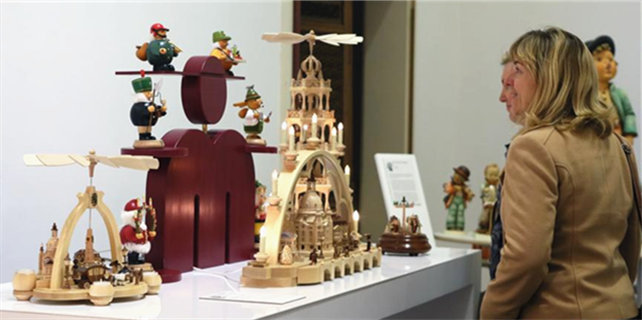A special performance for autistic children
The Paper Planet performance which debuted at the Shanghai Children's Art Theater (SHCAT) on Feb 24 was held to a hall of empty seats.
But it was not because no one turned up for the show - the audience was the show.
Designed by Polyglot Theatre, an Australian company well-known for its creations of interactive and experiential theater performances for children, Paper Planet was held as part of SHCAT's year-long plan to reach out to children with special needs.
SHCAT held 10 sold-out performances of Paper Planet from Feb 24 to 26.
During the show on Feb 24, autistic children took to the stage filled with a variety of props made of paper and cardboard. With the guidance and encouragement from actors, the children donned costumes and learned how to create objects such as wings, crowns and snowflakes that became part of the performance.
"Polyglot always pays attention to a child's dynamics, waiting for his or her response before adding to it," said Sue Giles, artistic director of Polyglot Theatre, on how the special performance works. "With autistic kids, we want to understand a child's particular approach, what draws their attention and what pulls them in."
She added that her company is well aware that parents may be uncomfortable with letting their autistic children interact with others in a public setting, and she assured them that "this is a space that allows all approaches, room, time and validity".
According to Giles, the Polyglot team comprises educators experienced in dealing with autistic children as well as artists who have been trained in child-led practice. She said that such artistic experiences are creative, playful and transformational, and can open up a world to people who do not have the same opportunities as others.
Cheng Jie, deputy director of the Changning branch of the Shanghai Qingcongquan Training Center for Children with Special Needs, said that such programs are important for autistic children as it allows them to develop their communication skills and learn how to fit into society.
"Autistic children have difficulty expressing themselves. Their feelings are pent up and this causes behavior problems," said Cheng.
"Parents need as much help as children. It's important that they adjust their expectations and attitudes, accept the fact that their children are different. It is only then can they help their children to improve their condition."
According to Cheng, autism affects 1 in 68 children around the world today. Qingcongquan, which was founded in 2004, is among the more than 10 institutions in Shanghai that help autistic children.
Starting this year, the theater will not only put up shows especially for children with special needs, but also set aside a corner in the audience area for them, said general manager of SHCAT Liang Xiaoxia. Two other similar projects by the Bamboozle Theatre in Britain will also be held at the center this year.
To boost its capability in catering to children with special needs, SHCAT has invited psychology and medical experts to train their staff. The center has also improved its infrastructure, such as adding a ramp from the gate to the working elevator and putting up signposts to direct the children.
zhangkun@chinadaily.com.cn
















